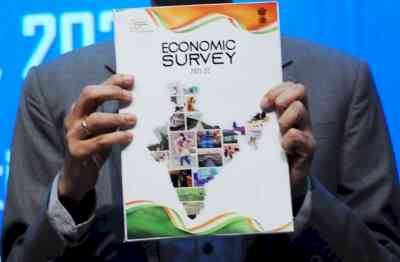Suppressed global trade to affect India
Due to aggressive and synchronised monetary tightening, global economic growth has started to slow, and so has world trade, the Economic Survey for 2022-23 has warned.

New Delhi, Jan 31 (IANS) Due to aggressive and synchronised monetary tightening, global economic growth has started to slow, and so has world trade, the Economic Survey for 2022-23 has warned.
As per United Nations Conference on Trade and Development (UNCTAD) the latest global trade update, global trade growth turned negative during the H2:2022, and geopolitical frictions, persisting inflationary pressures, and subdued demand are expected to suppress global trade further in 2023.
This is likely to affect many countries, including India, with the prospects of sluggish exports continuing into FY24, compared to the promise shown at the beginning of the current year, the Survey said.
For many countries around the world, including India, 2021 was a period of recovery for health and economies from the impact of the pandemic.
For the advanced economies, in particular, the enormous fiscal stimulus earlier injected by their governments supported a strong demand revival. Growth in world trade subsequently followed, of which India was also a beneficiary.
India's exports surged in FY22, and the momentum lasted up to the first half of FY23. Export growth was strong enough to increase India's share in the world market of merchandise exports.
Rising inflation and monetary tightening led to a slowdown in global output beginning in the second half of 2022. The global PMI composite index has been in the contractionary zone since August 2022, while the yearly growth rates of global trade, retail sales, and industrial production have significantly declined in the second half of 2022.
The consequent dampening of the global economic outlook, also compounded by expectations of a further increase in borrowing costs, was reflected in the lowering of growth forecasts by the IMF in its October 2022 update of the World Economic Outlook (WEO).


 IANS
IANS 










